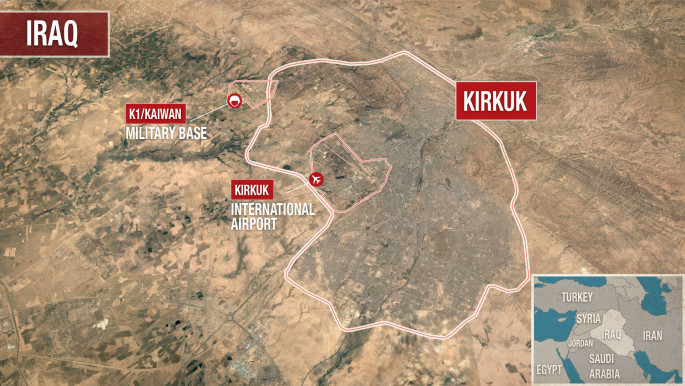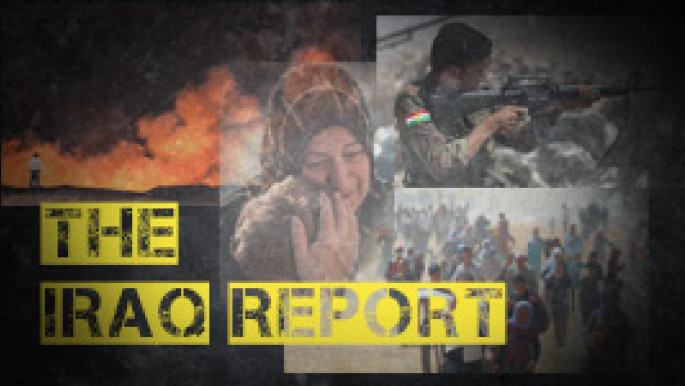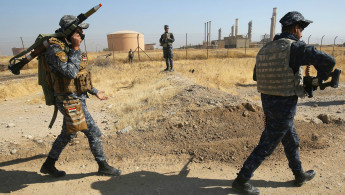Iraqi army seizes Kirkuk oil fields from Kurdish forces
It follows an overnight offensive by Iraqi forces on the disputed city of Kirkuk, with at least ten Kurdish fighters killed and 27 wounded in fighting, an Erbil official has said.
The death toll only covered hospitals in the Chamchamal area, Sherzad Hassan, deputy director of health in the region said with dozens more Kurdish Peshmerga fighters missing.
Iraqi military forces launched operations against Kurdish forces around Kirkuk early Monday, following a tense stand-off over a controversial independence referendum last month.
Kirkuk is hotly contested between the two powers, with Kurdish forces in control of the oil-rich, ethnically-diverse city, which Baghdad claims as an integral part of Iraq.
Earlier on Monday, Iraqi forces seized a military airport as well as the K1 army base from the Kurdish fighters, just eight kilometres north of Kirkuk.
 |
State-sanctioned and Iran-backed Hashd al-Shaabi militias [Popular Mobilisation Forces] have also reportedly taken a lead role in the offensive.
The Shia paramilitary force had taken up positions around the hotly contested northern city before the assault took place.
The militiamen were stationed in Turkmen areas on the western side of the city, which had been abandoned by Kurdish forces, local reports said.
Sporadic gunfire can be heard inside Kirkuk. Police at a checkpoint to the north said thousands of Kurdish residents were leaving attacks by Hashd al-Shaabi.
The militia is viewed with deep suspicion by the city's Kurdish community.
'Thousands fleeing'
The exodus in buses and cars towards Erbil and Sulaimaniyah - the two main cities of autonomous Iraqi Kurdistan - created traffic jams on roads leading out of Kirkuk.
A local official in charge of the displaced said tens of thousands, mostly Kurds, were heading out of the city.
"We're leaving because we're scared there will be clashes" in the ethnically mixed city of 850,000 people, said 51-year-old Chounem Qader.
"We also had to flee Kirkuk back in 1991, like today," she said, referring to a Kurdish uprising that was put down by forces of late dictator Saddam Hussein and when tens of thousands of Kurds were deported from the region.
 |
|
| Catch up with our weekly round-up from Iraq |
Himen Chouani, a 65-year-old Kurd taking flight with his family, pinned the blame on politicians in both Baghdad and Erbil, the capital of Iraqi Kurdistan.
"We were living in peace but politicians don't want good things for us, neither in Baghdad nor Erbil. They're fighting to control the oil, and the victims are us, the residents of Kirkuk," he said.
Kurdish forces known as Peshmerga took control of Kirkuk in the summer of 2014, when the Islamic State group swept across northern Iraq and the country's armed forces crumbled.
Iraq has since demanded that the city - which is outside the Kurds' autonomous region - be handed back to federal control.
Tensions have escalated since the Kurds voted for independence in a non-binding referendum last month.
Agencies contributed to this report.
Click here to receive The Iraq Report each week in your inbox





 Follow the Middle East's top stories in English at The New Arab on Google News
Follow the Middle East's top stories in English at The New Arab on Google News


